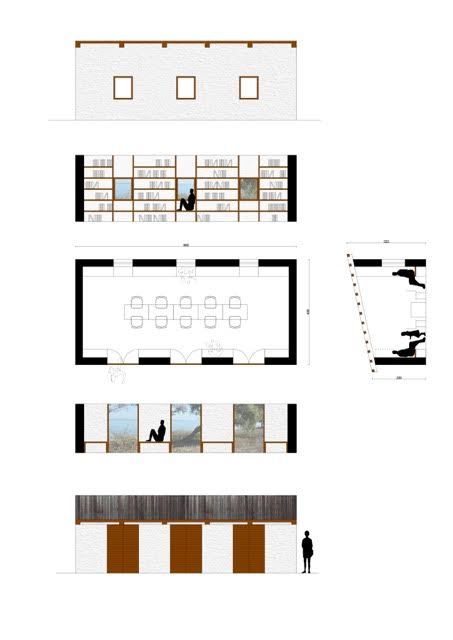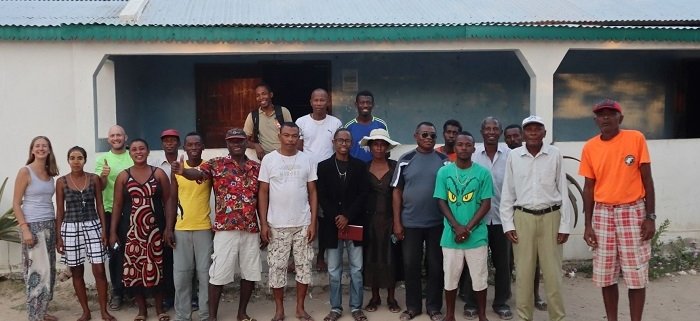Ifaty’s First Public Library: Project Update
As you may remember, we held a MPA relay race fundraiser for Ifaty’s first public library back in April. Since then we have been hard at work on the project, surveying the property to build on, developing sketches and blueprints for the structure, and sourcing books and additional donors to match our funding.

You may wonder, as I did, why we need more funding for the project. After all, the £1000+ raised is a considerable amount of money, and you would expect it to go very far in one of the poorest countries in the world. And in that sense, it does. According to our estimations, we will be able to build the entire structure of the library using these funds – and there are few places you can make this big of an impact with this sum. The money will provide for cement, used to make the foundation and the building’s walls; sheets of tin, for the roof; building tools such as nails, hammers, and re-bar; and the cost of labour itself. This means that we are already at full budget with just the structure itself; the money does not cover bookshelves, chairs, tables, books, or anything else that we will need to fill the library itself. However, limited funding can also give rise to innovative solutions.
Enter one of ReefDoctor’s recent interns: Mislav Žugaj, who has taken on a strong role in this project. With his background in graphic design, Mislav has provided invaluable help in regards to structural design and location mapping. His university friends and connections have also stepped up to support us, with architect Ana Lisonek creating the blueprints you see below. Ana has experience in creating dynamic solutions that are tailored to fit local situations, and had some ingenious ideas for reducing building costs. One example of using our location and the materials available to our advantage comes in the form of the ocean-facing doors. These doors will be made of termite and pest-resistant wood, which is much cheaper than concrete and will thus reduce structural expenses, saving money to be appropriated for other aspects of the library. Furthermore, these doors take care of the lighting problem; when opened, they will allow the ever-present Madagascan sunlight to illuminate the inside of the building for the entire day, ideally eliminating the need for electrical light. Utilizing the local landscape and climate to create solutions in response to limited funding and materials is just one example of what we can achieve when we put our minds to it!
 Both adults and children will utilize the library, and we plan on incorporating it into our education programme so that kids will see the library as both a learning space and a fun place. This is where ReefDoctor’s old museum comes into play; formerly a marine museum, the structure fell into disrepair after cyclone damage and due to lack of funds hasn’t been utilized since.
Both adults and children will utilize the library, and we plan on incorporating it into our education programme so that kids will see the library as both a learning space and a fun place. This is where ReefDoctor’s old museum comes into play; formerly a marine museum, the structure fell into disrepair after cyclone damage and due to lack of funds hasn’t been utilized since.

We plan to restore the museum and create a reading space that will also look out onto the ocean, with activity areas where kids can draw, read, write, and make art. After all, the importance of making learning fun and interactive for the children cannot be understated; here in Madagascar, most ‘learning’ in the public primary school (which provides education for 800+ children in only three classrooms) is simply copying what is written on the blackboard. This library will occupy a vital niche in Ifaty, providing the village with more opportunities for all community members to enhance their literacy and ultimately, their contribution to society.

The 8th of September 2016 marks the 50th anniversary of International Literacy Day, for which the slogan is: “Reading the Past, Writing the Future” (UNESCO 2016). This slogan is particularly relevant to Madagascar, as it calls upon the government to devote resources to education and literacy improvement as a way to write a more sustainable future. It also envisions a productive and sustainable society that can be created by the next generation of educated and literate Malagasy citizens. As author Daniel Akparobore succinctly states, “The ability of the individual to contribute to the development of country lies in his ability to read and write. There cannot be meaningful development in modern society where [the] majority of the populace is illiterate.” Sustainable development and literacy go hand in hand, and ReefDoctor is excited to debut a new forum in which innovative ideas concerning the future of the Bay of Ranobe can flourish as access to information is improved.
Article by RD Community Project Coordinator Katie Riley





